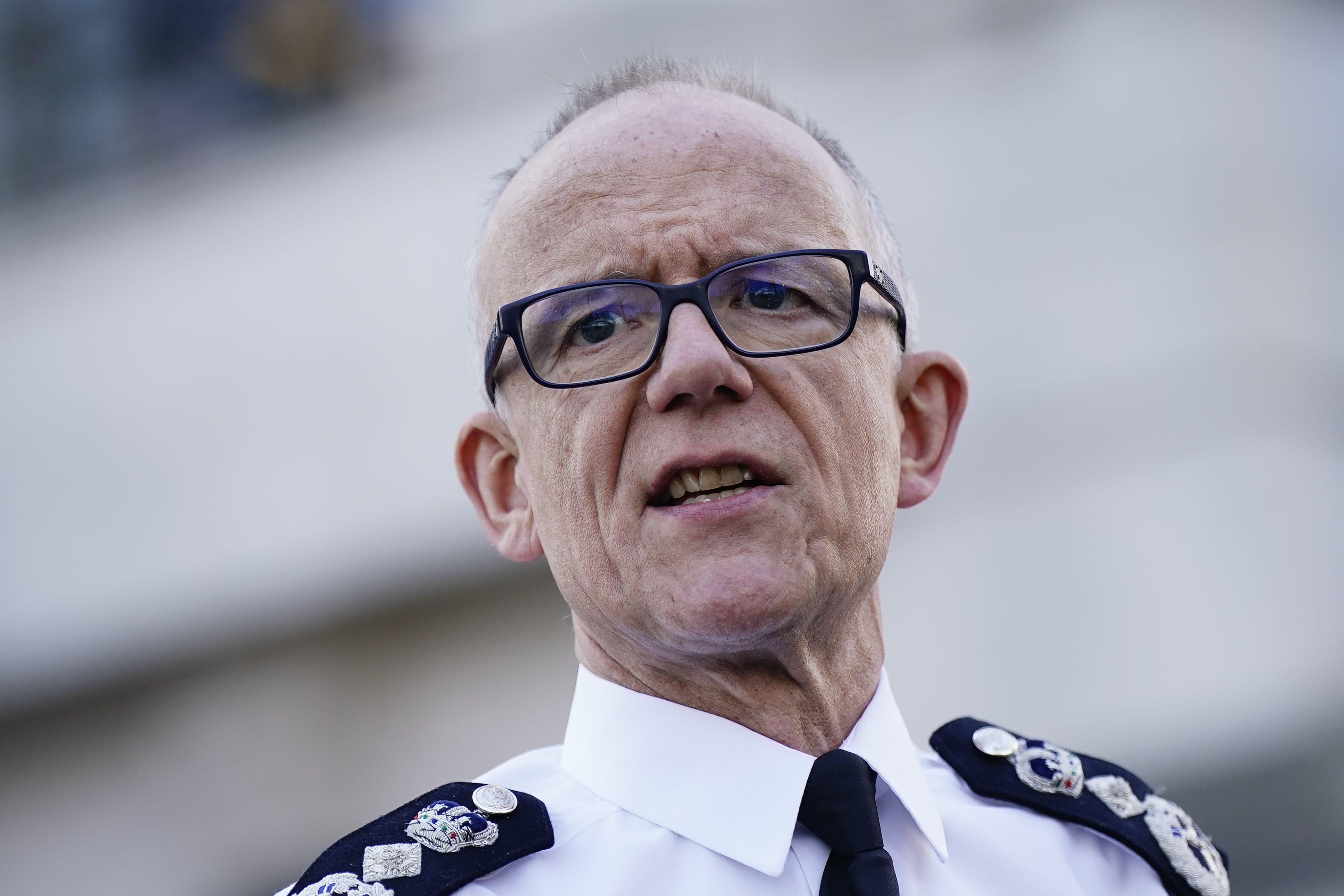Met Police chief: ‘Nonsensical I cannot kick out badly behaved officers’
Commissioner Sir Mark Rowley, who started the role in September, believes hundreds of corrupt officers serving in the force should not be in the job.

The head of Britain’s biggest police force has said it is “nonsensical” he cannot sack police officers after he moved to clean up the workforce.
Metropolitan Police Commissioner Sir Mark Rowley, who started the role in September, believes hundreds of corrupt officers serving in the force should not be in the job.
The murder of Sarah Everard by a serving officer and ex-Pc David Carrick being unmasked as a serial abuser and rapist are among the scandals to have hit the force – branded institutionally racist, homophobic and misogynist in a major review.
It comes as officers were moved from fighting terror and serious crime to help clean up the force.
Sir Mark told BBC Radio London on Thursday morning: “In all cases, I don’t have the final say on who’s in the Metropolitan Police. I know that sounds mad, I’m the commissioner.
“There are independent legal tribunals who can decide that we have to keep somebody even though we want to sack them, and that’s one of the powers that has to be changed.
“The Home Secretary is doing a review which she’ll publish at the end of this month.
“If you expect me to sort out the cultural issues in the Met and get rid of the people, then give me the power to do it.
“Can you imagine sitting with the chief executive of a big organisation saying they weren’t allowed to sack certain people – somebody has to decide for them? It seems nonsensical.”
He added officers kicked out of the force will also be prosecuted if they have committed crimes.
In a letter to Home Secretary Suella Braverman and Mayor of London Sadiq Khan, Sir Mark said the work to clean up the force was so urgent that around 90 officers had been diverted from serious crimes to the Directorate for Professional Standards (DPS).
Sir Mark said: “Not only have we increased our DPS by 150 people, but the scale and urgency of this work has meant diverting officers from other missions such as serious and organised crime and counter terrorism.
“Over the last three months we have had, on average, 90 additional officers and staff from these areas supporting DPS.
“The shared determination has been seen through the excess of volunteers.
“We have taken this decision because we cannot succeed in any policing mission unless we resolve these issues as urgently as possible.”
He added: “The most urgent thing is to, if you like, remove the cancer from the body and that’s what this is about, that first step.”
The Met is carrying out a series of reviews of officers and staff to try to weed out those who should not be in the job.
More than 1,000 records where officers and staff were accused of domestic violence or sexual offences in the past 10 years have now been checked to make sure the right decision was taken.
A total of 161 Met officers have criminal convictions, 76 for serious traffic offences including drink driving and careless driving.
Another 49 have convictions for crimes of dishonesty or violence – eight of whom committed the offences while they were police officers and remain serving with the force.
Other crimes include drug possession, criminal damage and public order offences, and three serving officers have convictions for sexual offences.
Sir Mark said he saw the list and thought ‘Crikey, that’s not right’.
However, he told the BBC Radio 4 Today programme there is not enough “leeway” to dismiss the “hundreds” of people in the force who should not be there.
All 50,000 employees of the Met are being checked against the police national database, which is used for intelligence.
So far, of the 10,000 records that have been checked, 38 cases of potential misconduct have been uncovered and 55 where there is an off-duty association with a criminal.
Ms Braverman said: “The Met plays a unique role in keeping millions of Londoners safe and protecting the country from terrorism, so it is crucial the public has confidence in the force to carry out these duties with the utmost professionalism.
“I have been clear that a relentless focus on improving standards and common sense policing is required.
“Sir Mark’s update on the work to root out unfit officers demonstrates the scale of this challenge but I have confidence in his plan to turn around the Met and ensure the force is delivering for the public.
“I am also driving forward work to review the police dismissals process to ensure the system is effective at removing officers who fall below the standards we expect.”
Mr Khan said: “It is right that action is now being taken to review and remove vetting from officers who cannot be trusted to police London – the first step to removing them from the Met altogether.”
Susan Hall, chair of the London Assembly’s Police and Crime Committee, said the number of criminal convictions “proved” the force’s vetting service is not “fit for purpose”.
Abigail Ampofo, of leading domestic abuse charity Refuge said: “While we welcome the Met addressing the issue of its wholly inadequate vetting practices, and rooting out officers who have committed crimes, we remain concerned that this approach is failing to address the systemic problems within the Met and wider policing.
“Releasing a series of figures obscures the real issue – a force which is institutionally misogynistic, racist and homophobic.
“Unless Sir Mark Rowley can recognise the extent of this issue and begin the work of root and branch reform, survivors will not regain the confidence to approach the police about crimes perpetrated against them.”
Bookmark popover
Removed from bookmarks